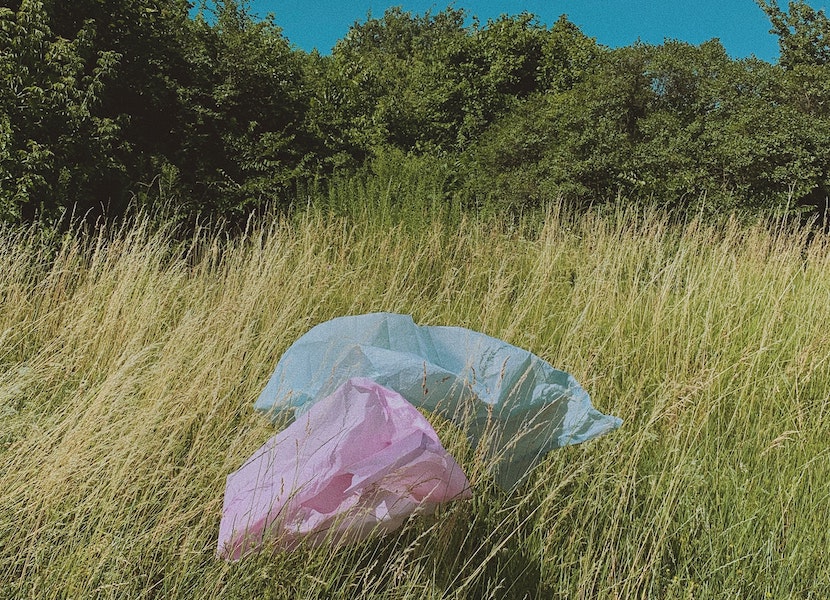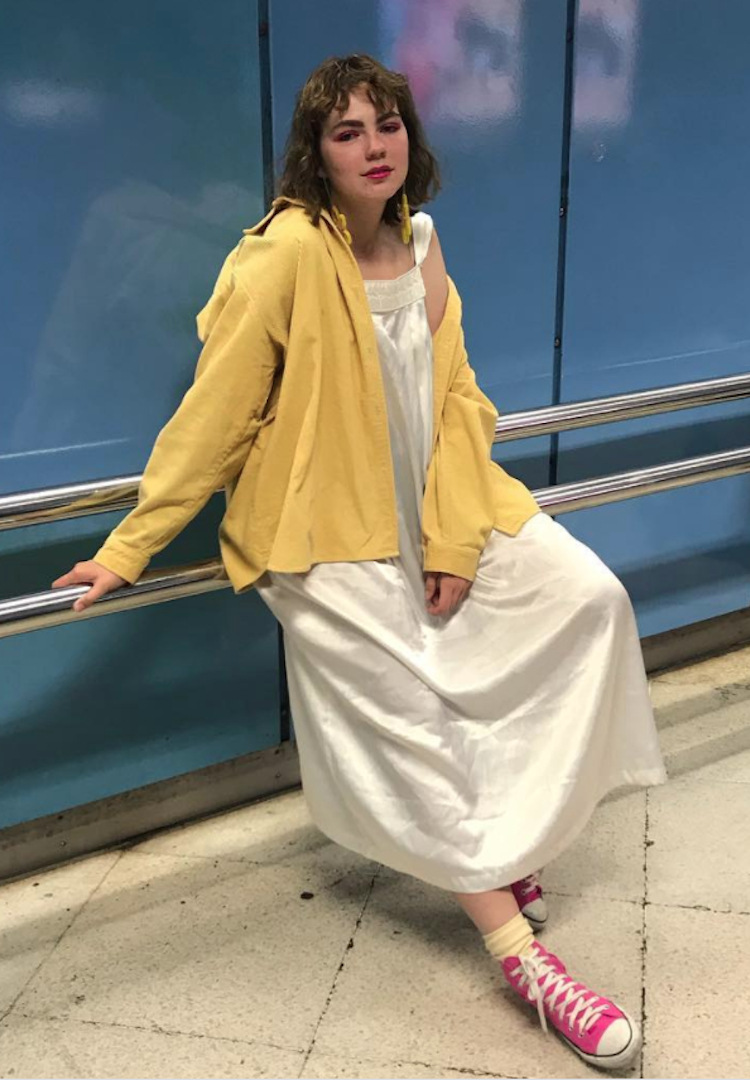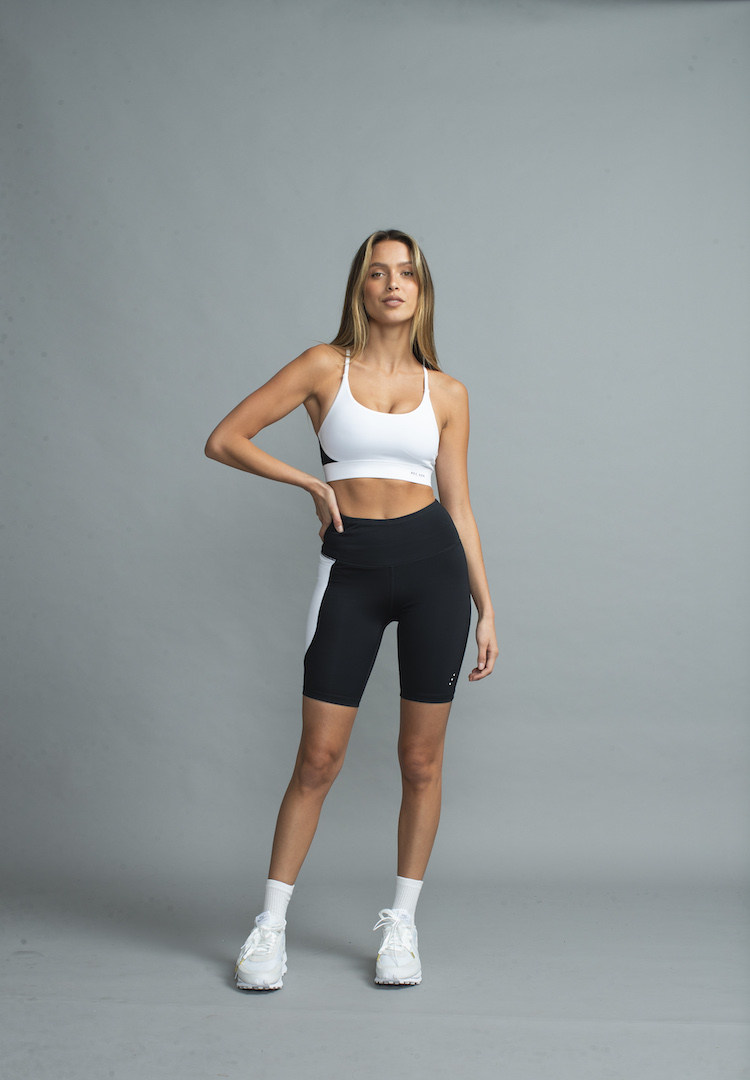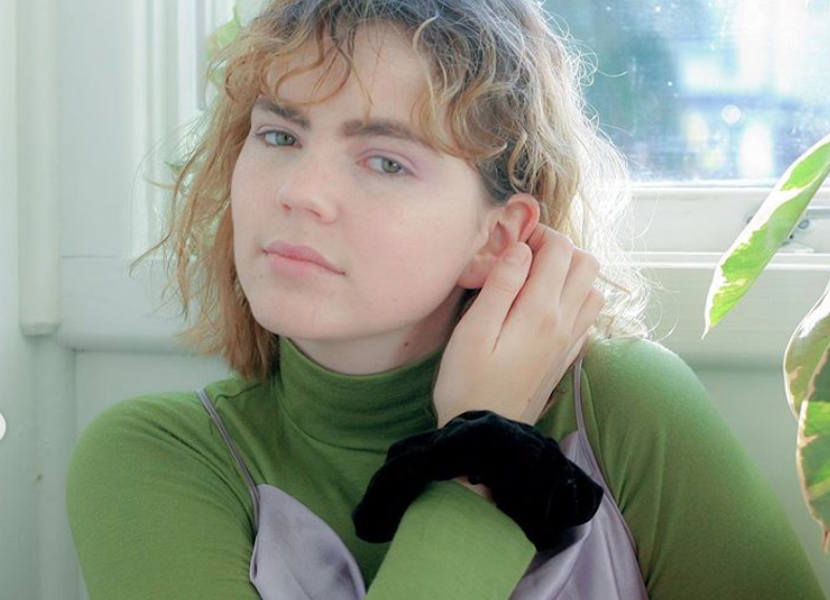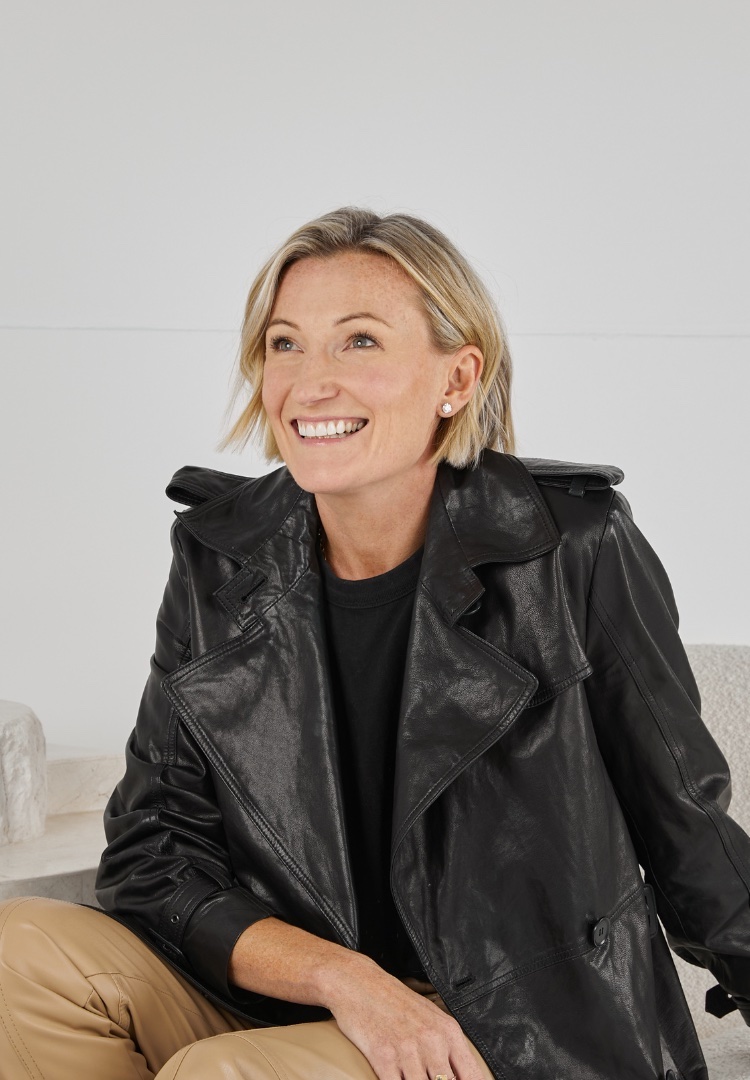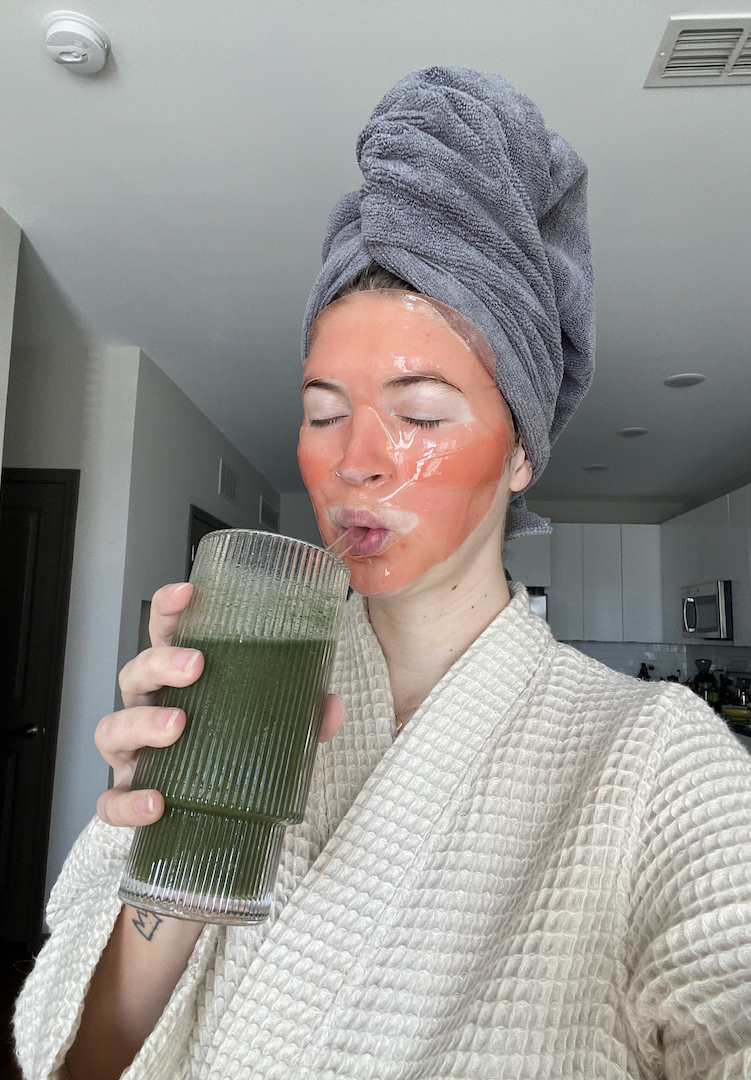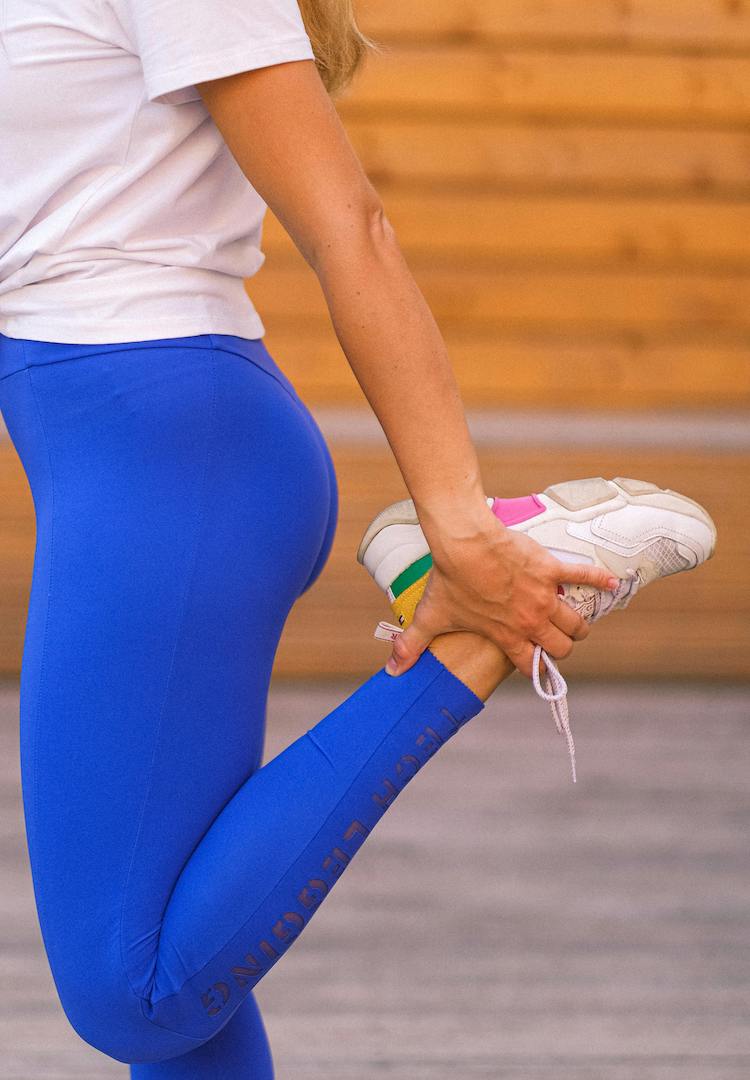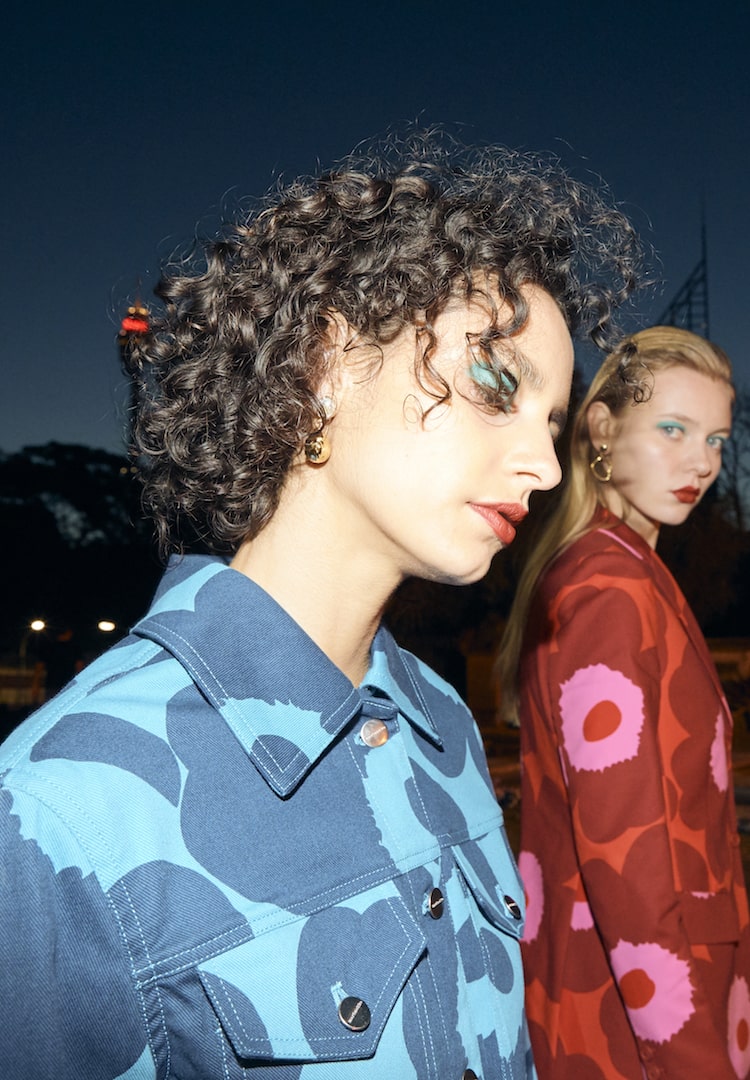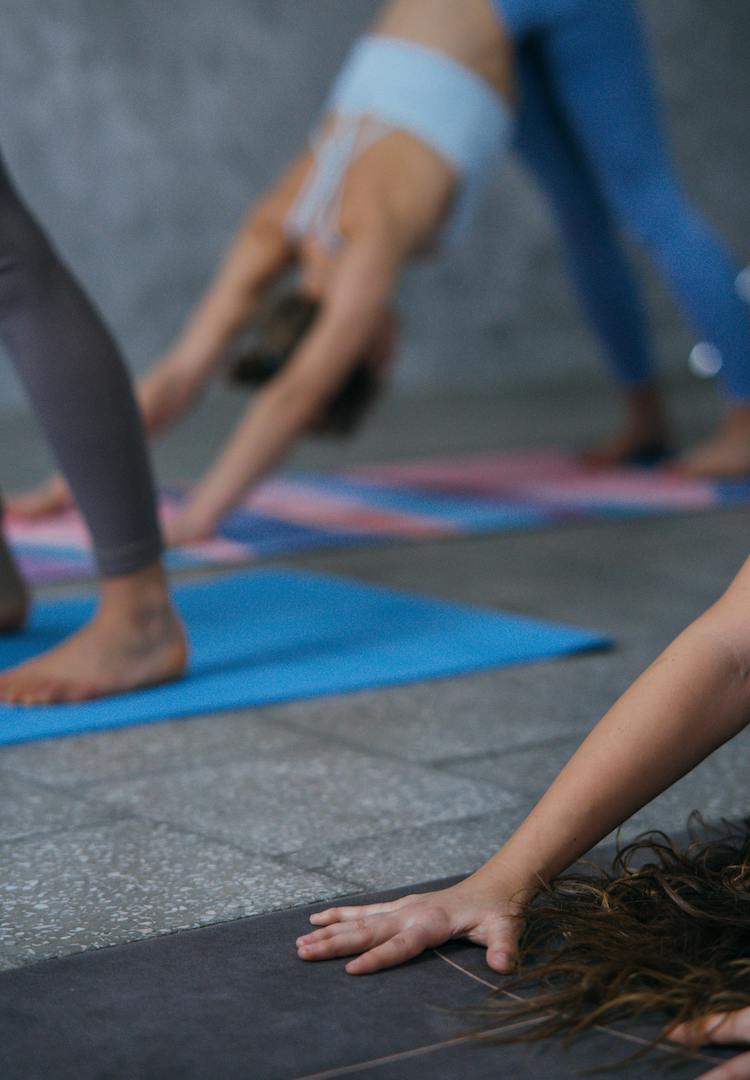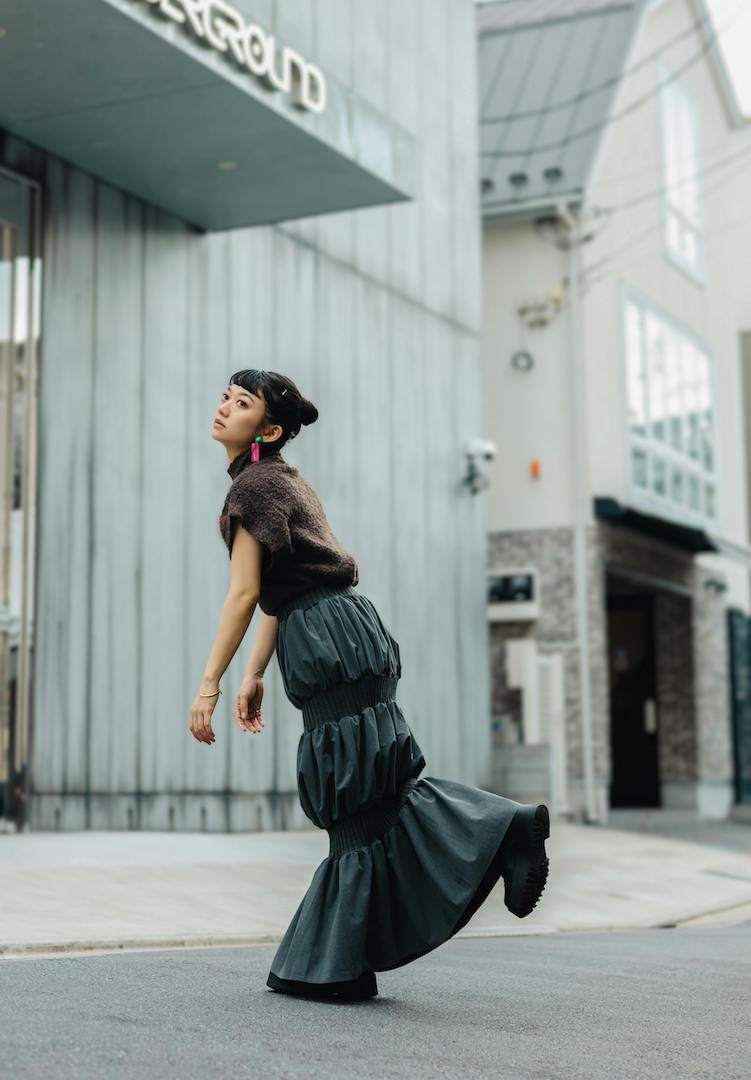What it’s been like finding my place in fashion as a plus-size woman
PHOTOGRAPHY BY CAITLIN JABLONKA
WORDS BY MAEVE KERR-CROWLEY
“I’ve found one way of controlling my position within the fashion industry, and that’s talking about it.”
I’ve been interested in fashion for as long as I can remember. Not a casual interest, mind you, but an obsessive, time consuming, centre-your-entire-identity-around-it kind of interest.
It’s informed most of my hobbies and life goals, from learning to sew in primary school to focusing heavily on fashion media throughout my journalism degree. It nudged me towards my internship and later work with Fashion Journal.
I hope it’s not arrogant to say my sense of style has also become a pillar of my personal brand. The size of my wardrobe is borderline shameful, and my friends know to expect a new, arguably over the top look every time I arrive at a party. Putting together outfits gives me a thrill rivalled only by being complimented on said outfits.
However, since the day I hit puberty – later than basically everyone I knew, but that’s another personal sore spot – I’ve been bigger than the other girls around me. I went from a tiny teenager who looked eight years old to 5’11” and chubby in a couple of short years, and suddenly I held the title of ‘plus-size’. This unexpected development seemed like it would put my relationship with fashion in jeopardy.
Fashion has never been a particularly inclusive place, although it’s on a promising upwards swing. For people who don’t fit a certain mould, it can be an unwelcoming and sometimes openly hostile place. That’s only become clearer to me as I’ve gotten older. This is partly because I’ve actually weaselled my way into the industry in my own small way, and partly because social media has blown up and the entire world’s opinions are in your pocket.
When facing the combination of these two things, it’s hard not to miss the insidious, unspoken message that permeates the entire world of fashion: this isn’t meant for you.
It’s in the overheard conversations between stylists bemoaning having to dress ‘normal people’ without model proportions. It’s in collections I’m expected to enthusiastically endorse while knowing I’d never be able to wear them. It’s in being offered free clothing and having to say no because a brand doesn’t make my size.
It’s in never seeing people who look like me in photoshoots or campaigns, and in posts lording thin celebrities or influencers as style icons for wearing a T-shirt and jeans while fat people bend themselves over backwards for online recognition.
I’ve felt appreciated and respected while wading about in the fashion world, but I’ve also felt lonely, bitter and unwelcome. I’m often the largest person in any space I’m in, both professional and personal, which sadly means everyone larger than me on the sliding plus-size scale isn’t represented. It also creates a silent divide, where I know can’t relate to the experiences of the people around me.
A couple of years ago I had to actively disconnect the ideas of fashion and style in my mind. Fashion was waste and the exploitation of workers and the sad, shameful experience of someone giving me a greasy at Fashion Week, but I could still pride myself on my style. I could still care about clothes and put together fun outfits and feel good about how I was dressed. That compartmentalisation worked for a little while.
Then I thought hey, screw that.
View this post on Instagram
Had my sunglass privileges revoked due to leaving them on the train disorder.
I have just as much right to love fashion as anybody, and by mentally and emotionally disengaging from the industry I was letting the gatekeepers win. Every empire has to adapt or fall eventually, and fashion is on its way towards a more inclusive future. I have every intention of being involved. Hell, I’ll kick down the gate myself if I have to.
I’ve reached a point in my fashion journey where I mostly feel secure. Not always, and not with everything, but I’m fuelled by enough pettiness and self-confidence to not let the world make me feel like I don’t belong. I’ve learnt how to make myself feel like I’m enough, and I promise it’s not as impossible as it feels sometimes.
The simplest answer is to get your self-esteem so high that nobody can shake your confidence even if they try. That’s not so simple in practice, of course, but it’s a goal to work towards little by little. I adopted a mantra: “This is what I look like and there’s nothing I can do about it.” The implicit message in this admittedly nihilistic outlook is that there are other things worth devoting my time and energy to.
One of those things is having fun with fashion and experimenting with personal style. If you’re trying to wear the same things all the thin, trendy Instagram girls are wearing, you’re naturally going to compare yourself and feel like you don’t measure up. In this way, it’s almost a godsend that those brands don’t accommodate for my size. I have no choice but to get creative and figure out what I actually like wearing.
When you feel comfortable and interesting in an outfit, your confidence skyrockets and people take notice. Wearing something that’s different and a little out there with pride is so sexy and cool. Sure, other people’s opinions of you shouldn’t matter, but we’re all only human and the high of someone saying they like your outfit can work wonders on your self-esteem. I even take note of which of my clothes people tend to compliment the most and wear them on days when my confidence is low to forcibly recreate that experience.
Once you feel secure in your style, you can view fashion differently. I had to change the way I approached social media because I was sick of seeing pretty girls in cool outfits and being consumed with envy. The first step to emotional freedom is to unfollow people who make you feel like shit, no matter how ingrained they are in the social media zeitgeist.
Of course, just unfollowing every thin girl on Instagram isn’t going to fix anything in the long term. A lot of the people running these accounts are actually very cool and lovely, and I like seeing the outfits they put together. So, I turned my daily scrolling into an exercise in critical thinking and introspection.
When I see a post from someone I envy and think that I could never be like them, I make myself analyse why I feel that way. What makes their photo different from one I’d take of myself? The clothes they’re wearing are similar to clothes I own, they’re styling them in a similar way that I’d style them, they’re posing in a similar way I’d pose. If the only difference is that they’re thin and I’m not, I know the problem is societal, not personal.
If I can internalise this message and not blame myself for the way the world thinks about or values my body, then I can actually enjoy using social media. I don’t care about how many followers I have or how many likes I get. I just like taking photos of myself and my outfits, so why should I feel bad about not being like the skinny influencers I follow?
But I’ve found one way of controlling my position within the fashion industry that might be more effective than any other, and that’s talking about it. Sitting quietly and not speaking up about things that make me feel uncomfortable for fear of being difficult or bringing attention to my weight has never gotten me anywhere. It just made me feel lonely and misunderstood.
The truth is, most people aren’t aware of the biases they have. Most people are barely conscious of the fact that they experience the world differently than others, so they’re likely to exclude or harm others without even realising it.
I might be in a better position than most to speak up about size diversity in fashion – after all, I’m writing this and it will be published for people to read – but one of the benefits of the technological, social media-obsessed age we live in is that everyone is capable of putting information out there. Everyone can share their experiences and opinions, call out injustice where they see it and bring others into conversations they’ve never had to have before.
When I started speaking up about my own experiences with fashion, people listened and wanted to do something about it. Standing up for yourself doesn’t mean you’re being difficult, it means you’re being honest. Of course, not everyone is willing to listen or understand, but not everyone’s opinion is worth giving a damn about.

